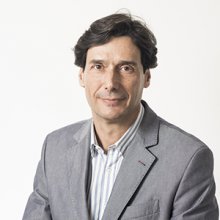Images
Participants

Contact

When you hear the word ‘immunotherapy’, the first thing that comes to mind is that it is a highly effective treatment for cancer. But could it also be the solution or hope for other conditions?
This was precisely the subject addressed at the Barcelona Biomed Conference “Immunotherapy beyond cancer. A cure for age-related diseases”, an event organised by the Institute for Research in Biomedicine (IRB Barcelona) from 18 to 20 November that brought together more than 100 scientists.
Over 3 days, researchers from all over the world have emphasized the potential of this new therapy for other applications. In this regard, Manuel Serrano, ICREA researcher at IRB Barcelona and co-organiser of the conference said, “Immunotherapy has transformed cancer treatment. But we still don´t know exactly how it works and that’s why research is still underway to improve its results. It’s thought that these same therapeutic approaches could be used for other diseases and that we’re on the verge of another potential revolution that will allow us to tackle other conditions”.
According to Serrano,“Immunotherapyis still at a very experimental stage, but we believe that in the future it could truly enhance the treatment of diseases such as Alzheimer’s, Parkinson’s and lung or renal fibrosis. These conditions are associated with ageing and they have no cure. Immunotherapy may be able to reactivate the immune system, enabling it to tackle these diseases and thus improve their treatment”.
The other co-organiser of this Barcelona Biomed Conference, Guido Kroemer, from the Centre de Recherche des Cordeliers in Paris, explained, “Immunotherapy has been a tremendous success for the treatment of cancer. The idea of this conference is to extend the concept in order to analyse whether immunotherapy could be used to treat diseases related to ageing. Time is the major risk factor for the most serious diseases, including cancer, and therefore we believe that any measure that slows down the biological clock could delay the development of diseases related to ageing”.
Around 30 international scientists have given talks on ageing at this conference and have shared their opinions on the usefulness of immunotherapy to treat non-cancer conditions and degenerative diseases associated with ageing, which together affect millions of people worldwide.
One of the leading speakers, Irv Weissman, a prestigious scientist from the Stanford School of Medicine, said, “The most important thing about immunotherapy is that cells of the immune system are highly specific and can therefore exclusively target harmful cells, like cancer cells, without affecting the others. As we have observed in patients and animal models, many incurable diseases in humans follow the same pattern: as cancer cells spread, they reach a number that triggers recognition and response by the immune system. Similarly, in other diseases that are as yet incurable, such as lung fibrosis and liver fibrosis, the harmful cells spread and these cells hold information that we can use to help the immune system fight these conditions”.
IRB Barcelona organises two Barcelona Biomed Conferences each year thanks to support from the BBVA Foundation. The next conference in this series, “Translation control and microenvironment interactions”, will be held on 15 June 2020.
About IRB Barcelona
The Institute for Research in Biomedicine (IRB Barcelona) pursues a society free of disease. To this end, it conducts multidisciplinary research of excellence to cure cancer and other diseases linked to ageing. It establishes technology transfer agreements with the pharmaceutical industry and major hospitals to bring research results closer to society, and organises a range of science outreach activities to engage the public in an open dialogue. IRB Barcelona is an international centre that hosts 400 researchers and more than 30 nationalities. Recognised as a Severo Ochoa Centre of Excellence since 2011, IRB Barcelona is a CERCA centre and member of the Barcelona Institute of Science and Technology (BIST).




